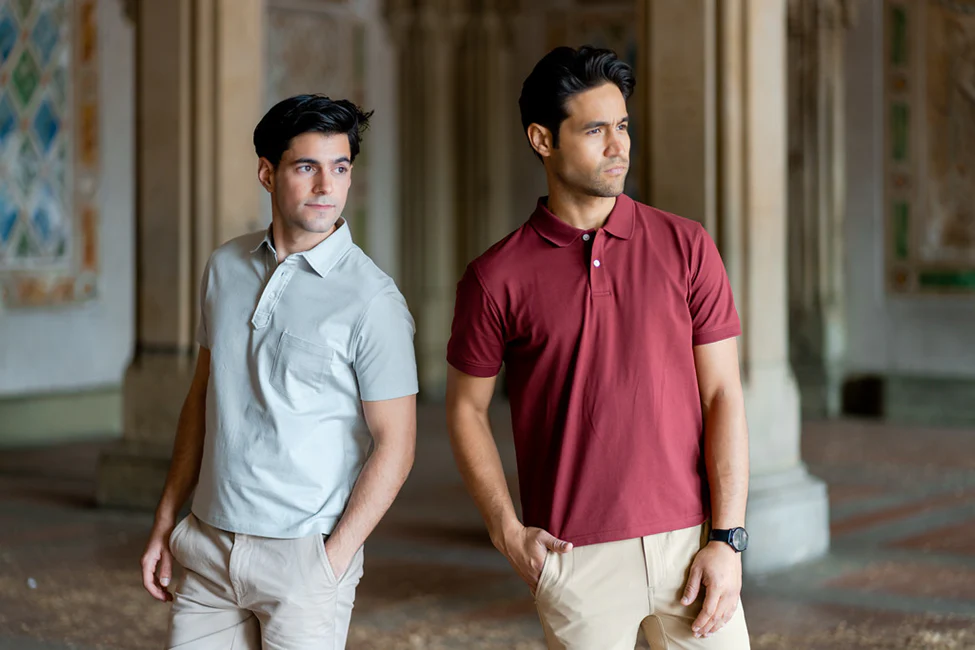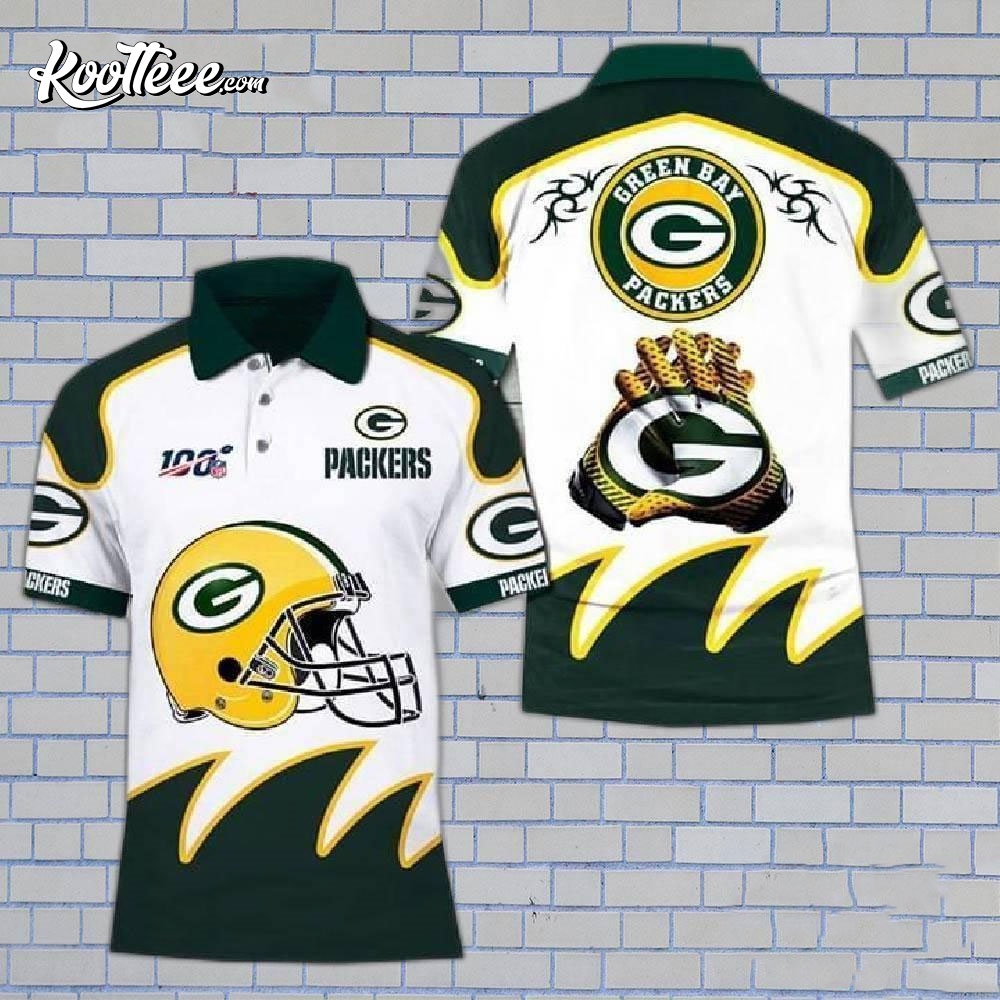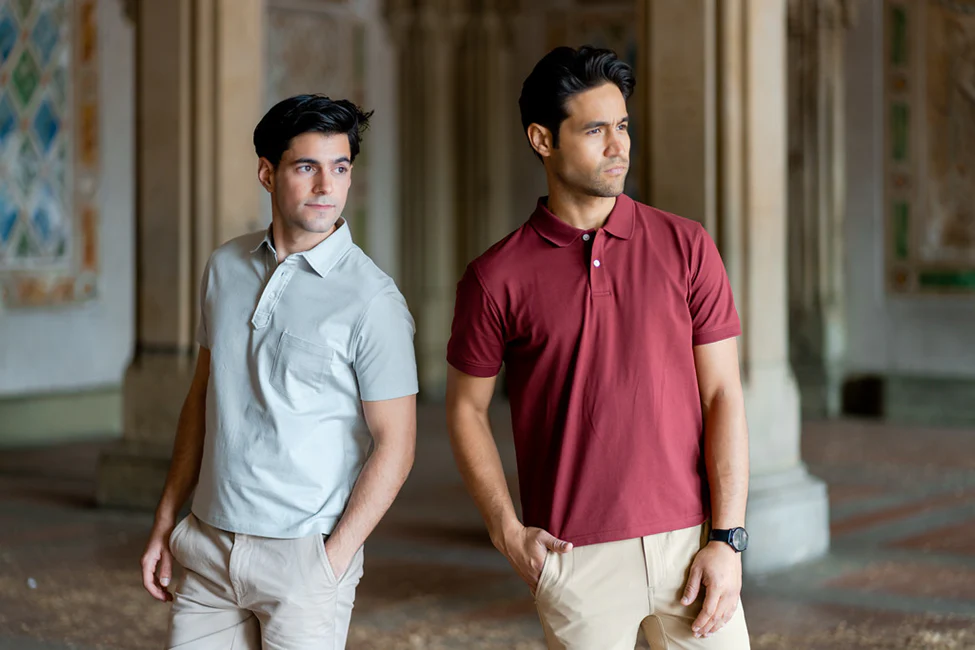No products in the cart.
For Him
Mens polo shirt vs T-Shirt: Which One Defines Your Style?
Choosing between mens polo shirt and a T-shirt can be tricky. At Koolteee, we break down their history, style contrasts, and the best occasions to wear each, helping you express your fashion identity with confidence.

Two Icons of Men’s Fashion
When it comes to everyday men’s fashion, two items dominate almost every wardrobe: mens polo shirt and the T-shirt. At first glance, they might seem similar, both are short-sleeved, both can be paired with jeans or shorts, and both are relatively comfortable. Yet, beneath the surface, the differences between a men’s polo shirt and a T-shirt go far beyond fabric and collars. One represents refinement without stiffness, while the other embodies simplicity, youth, and rebellion. Choosing between the two is not just about picking an outfit, it’s about defining your personal style.
The Origins: Sports vs Rebellion
The T-shirt has humble beginnings. Originally created as an undergarment for workers and soldiers in the early twentieth century, it slowly made its way into mainstream fashion. By the 1950s, actors like James Dean and Marlon Brando turned the plain white tee into a symbol of rebellion and masculinity. From there, the T-shirt became the ultimate casual garment, a canvas for self-expression, often featuring graphics, slogans, and logos that captured cultural movements.

What They Say About You
Clothes have always been a reflection of identity. Wearing a T-shirt often suggests a relaxed and approachable personality. It signals comfort, ease, and sometimes creativity, especially when paired with graphics or bold designs. A plain T-shirt can represent minimalism, while a vintage or band tee tells a story about personal taste and culture.
Fit and Fabric: The Details That Matter
Though both garments share similarities in cut, the way they are constructed sets them apart. T-shirts are typically made of cotton or cotton blends, often lightweight and soft. They can range from fitted cuts that highlight the physique to oversized streetwear styles that emphasize comfort and trend. Their simplicity makes them highly adaptable, but without the addition of layers or accessories, they tend to lean casual.
The mens polo shirt, however, is often crafted from piqué cotton, jersey, or modern performance fabrics designed to wick away moisture and resist wrinkles. The collar itself adds a level of formality that a T-shirt cannot replicate. A well-tailored polo hugs the shoulders and torso, providing structure and definition that flatters the body. Even when made from the same cotton as a tee, the collar and placket transform its look, instantly elevating it into a more refined category.
100th Nfl Anniversary Green Bay Packers Polo Shirt
100th NFL anniversary -The best mens polo shirt for hot weather.


Fall Leaves Autumn Lover Polo Shirt
Stylish men’s polo shirts for smart casual outfits in the fall season.
Versatility in Daily Life
When deciding which piece is more versatile, context plays an important role. The T-shirt shines in informal situations. It is the go-to choice for road trips, concerts, lounging at home, or meeting friends for coffee. Its strength lies in comfort and simplicity. Pair it with jeans for an effortlessly cool look, or wear it under a jacket for a casual layered outfit.
The mens polo shirt demonstrates versatility in a broader range of occasions. It transitions smoothly from day to night and from professional settings to social gatherings. A polo with chinos and loafers is acceptable for business-casual offices, while the same shirt with tailored shorts works for a resort vacation. Polos can even be tucked into trousers and layered with a blazer for semi-formal dinners, something a T-shirt would struggle to achieve without looking underdressed.
Cultural Legacy and Style Identity
The cultural impact of these two garments reveals even deeper differences. The T-shirt has long been linked to youth culture, counterculture, and rebellion. From rock band tees in the seventies to the explosion of graphic tees in the nineties and the oversized streetwear versions worn today, the T-shirt has always been a canvas of individuality. It often represents a man’s personal story, his favorite bands, movies, or causes.
Knowing When to Wear Each
While both deserve a place in a man’s wardrobe, knowing when to choose one over the other is essential. The T-shirt is ideal for errands, workouts, casual social gatherings, and moments when comfort is the priority. A T-shirt works best when the setting does not demand polish but instead values authenticity and ease.
The mens polo shirt is better suited for settings that require a balance between comfort and formality. Casual business meetings, vacations, dinner dates, or evening events where a T-shirt feels underwhelming are all perfect occasions for a polo. Its structured design allows you to appear put-together with minimal effort, making it the ultimate in smart casual dressing.
Styling Each Piece to Its Best Potential
Although both items are versatile, the way you style them determines their effectiveness. A T-shirt in high-quality cotton, well-fitted and in classic colors like white, black, or navy, will never go out of style. Layer it under a denim jacket, leather jacket, or even a casual blazer, and it transforms from simple to stylish.
A mens polo shirt benefits from fit and detail. Avoid oversized polos that look dated or sloppy. Instead, choose one that sits cleanly on the shoulders and offers a trim but comfortable fit. Neutral colors like navy, gray, and white make the best starting point, while stripes or bolder shades can add variety once you have mastered the basics. Paired with clean sneakers, loafers, or even espadrilles, the polo adapts effortlessly to your setting.
Conclusion
Rather than choosing between them, the smartest approach is to embrace both. Building a wardrobe with high-quality T-shirts and versatile polo shirts ensures you are ready for anything, from lazy Sundays to last-minute dinners. Each has its own story, its own identity, and its own place in modern men’s fashion. Together, they allow you to express every facet of your style.

